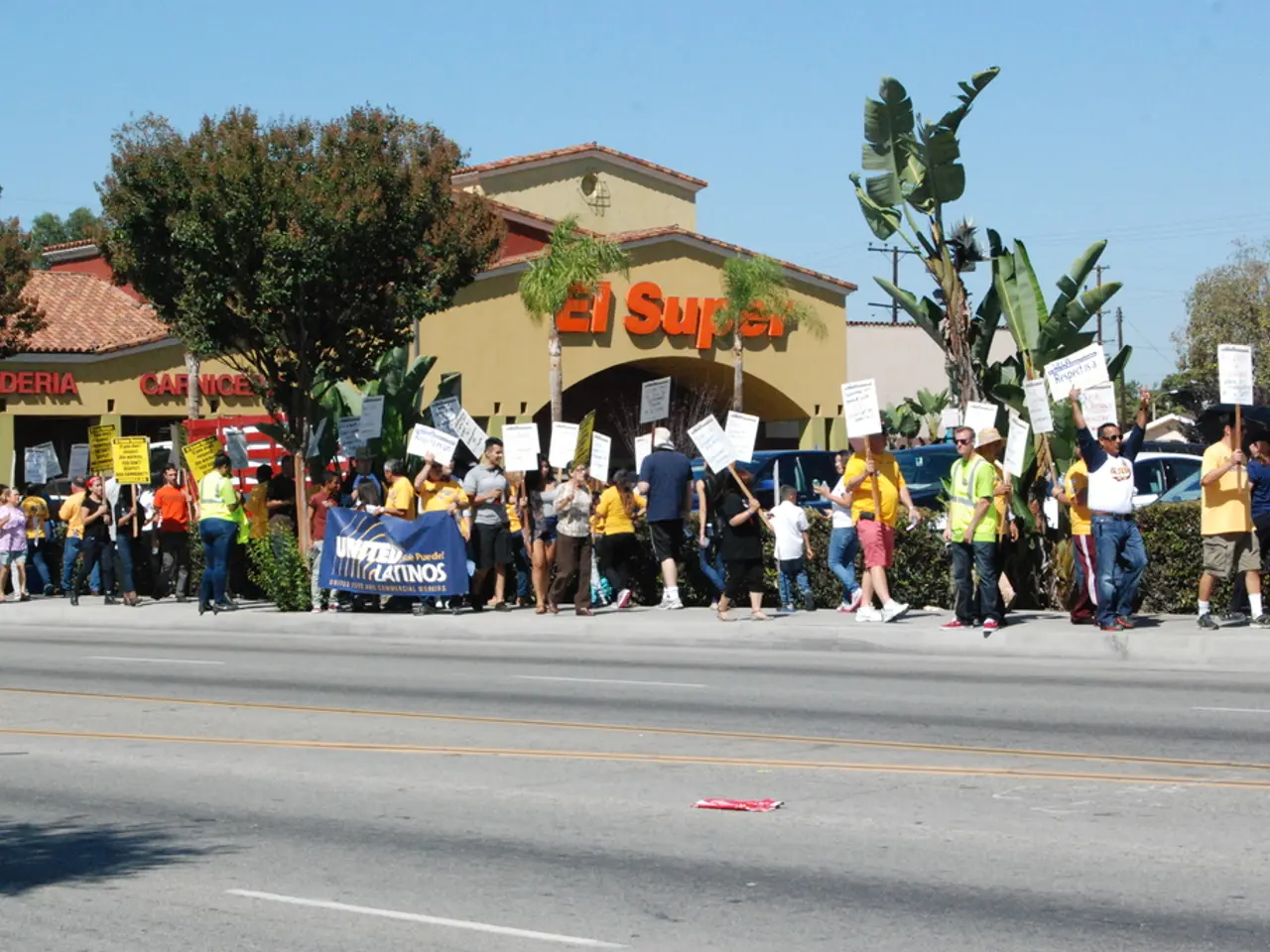Union leaders from the Union and SPD parties, both constituents of the current government, laud the collaborative work that has been undertaken during the first 100 days in office.
=========================================================================
In the first 100 days of its tenure, the black-red coalition government of CDU and SPD in Germany has made notable progress on major fiscal and infrastructure initiatives, but its working relationship shows some challenges due to differing party priorities.
The coalition's most significant achievement is the establishment of a €500 billion Special Fund dedicated to infrastructure and climate investments over 12 years. This fund allocates €300 billion for national infrastructure and €100 billion specifically to the Climate and Transformation Fund focused on renewables, hydrogen, and climate-friendly industry, while another €100 billion is earmarked for state-level projects. This important reform was backed by Chancellor Friedrich Merz (CDU), despite his previous skepticism of large new debt.
Another fiscal reform enables relaxation of Germany’s constitutional debt brake specifically for defence spending above 1 percent of GDP and grants more borrowing flexibility to federal states, increasing regional investment capacity.
On energy and climate policy, while the coalition affirmed intentions to reduce electricity grid fees for consumers through subsidies from the Climate and Transformation Fund starting in 2026, critics from NGOs and industry argue that the government’s budget plans lack sufficient emphasis on clean tech investments like hydrogen. The coalition faces criticism for a perceived deprioritization of climate action compared to previous mandates.
In terms of social policy, the coalition plans to reform social welfare (Bürgergeld), notably proposing cuts to housing support for the poorest households amid rising rents. This has sparked public debate and condemnation as potentially harmful to vulnerable populations. Chancellor Merz and CDU figures advocate capping rental payments within welfare benefits, highlighting the coalition’s tougher approach on social spending.
Regarding the working relationship between CDU and SPD coordinators, the coalition agreement reached before taking office outlined shared goals but also revealed ideological tensions. The CDU, led by Merz, emphasizes fiscal discipline and defence, whereas the SPD tends to push more on social policy and climate commitments. Challenges stem from balancing CDU’s conservative fiscal stance with SPD’s progressive priorities, causing debate over budget focus and investment areas. However, the coalition has managed to secure parliamentary majorities for constitutional amendment and budget frameworks, demonstrating functional cooperation despite these frictions.
After 100 days, the black-red coalition has passed 118 initiatives, including 57 legislative proposals, through the cabinet. SPD State Secretary Björn Böhning considers his cooperation with Chancellery Minister Thorsten Frei to be reliable, and both have developed a good and reliable working relationship. Despite no new information about the impact of the failed appointment of constitutional judges, the stability of the black-red coalition was not affected, according to Chancellery Minister Thorsten Frei.
In summary, the black-red coalition after 100 days has advanced significant budgetary and infrastructure reforms, while facing criticism on climate ambition and social policy cuts. The working relationship between CDU and SPD government coordinators is pragmatic but marked by differing priorities and some internal criticism.
| Aspect | Developments After 100 Days | Remarks | |-------------------------------------|------------------------------------------------------------|--------------------------------------------------------------| | Fiscal & Infrastructure | EUR 500 billion Special Fund set up for infrastructure & climate; relaxed debt brake for defence & states | Major financial framework reform, enabling new investments | | Climate & Energy | Commitment to cap grid fees with subsidies; criticized for insufficient climate investments | Coalition criticized over ambivalence on climate action | | Social Policy | Plans to cut housing support in welfare program (Bürgergeld) | Sparks social debate; reflects CDU influence on austerity | | Coalition Working Relationship | Parliamentary cooperation on budgets and reforms achieved; ideological tensions persist | CDU and SPD negotiate priorities; functional but delicate |
- The black-red coalition, amid pursuing significant fiscal and infrastructure reforms, has faced criticism for its policy-and-legislation on climate and energy, as it seems to lack sufficient focus on clean technology investments like hydrogen, according to critics from NGOs and industry.
- The working relationship between the CDU and SPD coordinators in the black-red coalition, although functional, is marked by politics centered around balancing fiscal discipline with progressive priorities, especially with regards to social policy and climate commitments, as evidenced by the debates over budget focus and investment areas.






